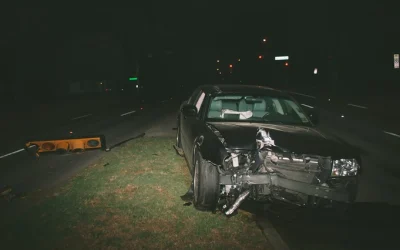Nevada Ecstasy Laws and Penalties
Though Las Vegas is known as “Sin City,” residents and visitors to Clark County, Nevada are subject to strict drug laws. A conviction for possession of MDMA, or “ecstasy,” in Nevada carries a potential prison term and the possibility of costly fines.
If you have been charged with an ecstasy-related offense in Clark County, Nevada, you should contact an experienced drug crimes defense attorney right away. A lawyer with experience defending clients against charges for possession or sale of ecstasy can advise you of your rights and fight for your innocence.
It’s important to understand that having a drug offense on your Nevada criminal record can prevent you from finding a job. Because most MDMA-related charges are felonies under Nevada law, you can also lose your right to carry a firearm. Other rights, such as the right to vote and the right to hold public office, can also be affected by a felony conviction.
This page contains information about ecstasy laws and penalties in Nevada. It is not a substitute for consulting with an attorney. Only a Las Vegas ecstasy defense lawyer can give you legal advice on your situation.
Penalties for Possession of Ecstasy in Nevada
The penalties for possession of ecstasy in Nevada vary based on how many times you have been convicted of possession of a controlled substance in the past.
FIRST OR SECOND OFFENSE: A first or second conviction of possession of MDMA is a category E felony in Nevada, carrying one to four years in a Nevada State Prison. You may be able to avoid prison and a conviction if you are willing to enter a drug education or rehabilitation program.
THIRD OR SUBSEQUENT OFFENSE: A third or subsequent conviction of possession of MDMA is a category D felony in Nevada, which carries one to four years in a Nevada State Prison, and a potential fine of up to $20,000.
Because of the serious consequences of having a felony on your criminal record, you must retain an aggressive criminal defense lawyer who will fight to have your charges reduced or dropped. A felony drug conviction can impact your ability to find housing and work in the state of Nevada.
Definition of Ecstasy in Nevada
It is illegal to possess, sell, manufacture, transport, and traffic MDMA, ecstasy, or Molly in the state of Nevada. Under federal law, MDMA is a schedule I narcotic. If you are found in possession of MDMA in Clark County, Nevada, you could face both state and federal criminal charges.
Methylenedioxy-N-methylamphetamine, or MDMA, is an illegal drug of the phenethylamine and amphetamine classes of drugs. MDMA is widely known as “ecstasy,” which is often shortened to “E,” “X,” or “XTC.” The term “Molly” colloquially refers to MDMA that is relatively free of adulterants.
MDMA is sold in pill or powdered form. Ecstasy pills are often bright in color and stamped with images such as smiley faces, Playboy bunny logos, peace signs, hearts, and flowers. It is usually swallowed or snorted.
The use of MDMA is growing rapidly amongst teens and young adults. It is considered a drug of choice within rave culture and is frequently used at clubs, music festivals, and parties.
Pure MDMA is rarely found on the streets. Ecstasy is often cut with adulterants such as caffeine, procaine, methamphetamine, diphenhydramine (the active ingredient in Benadryl), pseudoephedrine, and DXM.
Possession of MDMA in Nevada – NRS 453.336
Nevada Revised Statutes § 453.336 makes it a crime to possess MDMA, ecstasy, or Molly in any amount in the state of Nevada. The classification of the criminal offense and the penalties you will face as a result of a conviction depend on the amount of MDMA you are found to possess, and whether you have been convicted of possession of a controlled substance in the past.
Many people mistakenly believe that in order to be found guilty of possession of MDMA in Nevada that the ecstasy must have been on their person at the time of arrest. This is not the case. “Possession” is broadly defined under Nevada law, and you can be subject to criminal prosecution if ecstasy is found in any location over which you exercise control.
Nevada law prohibits three types of possession of MDMA: actual possession, constructive possession, and joint possession.
ACTUAL POSSESSION OF ECSTASY: Actual possession of MDMA occurs when someone physically keeps ecstasy on their person. Examples of actual possession of ecstasy include hiding a baggie of MDMA in your underwear at a music festival or holding ecstasy in your hand.
CONSTRUCTIVE POSSESSION OF ECSTASY: Constructive possession of ecstasy occurs when someone stores MDMA in a location over which he or she has control. Examples of constructive possession of ecstasy include hiding a package of 100 pills in your freezer or keeping several grams of Molly under the passenger seat of your car.
JOINT POSSESSION OF ECSTASY: Joint possession of MDMA occurs when two or more people share control or ownership over the same ecstasy. An example of joint possession of ecstasy is a woman who has knowledge that her roommate stores ecstasy in their apartment and allows this to take place. The woman can also be prosecuted for possession of ecstasy even if she did not use the roommate’s ecstasy herself.
If you have been charged with possession of MDMA in Clark County, Nevada, contact an experienced Las Vegas drug crimes lawyer right away.
Possession of MDMA for Purpose of Sale in Nevada – NRS 453.338
Nevada Revised Statutes § 453.338 makes it a crime to possess MDMA for purpose of sale in Nevada. Many people are improperly charged with this offense because of the circumstances surrounding their arrest.
Possession of MDMA for purpose of sale in Nevada is also referred to as:
Possession of a controlled substance with intent to sell
Possession of narcotics for purpose of sale
Possession for sale of drugs
Under Nevada law, you may be punished for possession of MDMA for purpose of sale even if you have not sold any MDMA or had no real plans to do so. Clark County prosecutors will attempt to introduce any evidence suggestive of drug dealing at your trial. The penalties for this offense, which are discussed in greater detail below, are very harsh.
In order to convict someone of possession of MDMA for purpose of sale in Las Vegas, Clark County prosecutors must prove two elements beyond a reasonable doubt:
You were in possession of MDMA in any form, andYou had the intent to sell the MDMA to others.
To prove the first element, the prosecution will argue that you had actual, constructive, or joint possession of MDMA in any form as discussed above.
To prove the second element, the prosecution will argue that the circumstances surrounding your arrest or other evidence suggests that you had intent to sell MDMA. Prosecutors are typically very aggressive in their attempts to introduce this type of evidence. This is one of the many reasons why it is important to hire a reputable criminal defense attorney.
Examples of evidence suggestive of intent to sell MDMA include:
Measured quantities of ecstasy pills or powdered MDMA stored separately in small bags or containers;
Possession of a firearm or other weapon;
Possession of a large quantity of cash, especially small bills;Arrest in a high-crime area known for drug transactions;
Arrest in a location known for ecstasy use such as a music festival or club; and
Being arrested with a large quantity of MDMA while not high or intoxicated.
A conviction for possession of ecstasy for purpose of sale can alter the course of your life forever. You should not rely on a public defender to handle such a complicated and sensitive case.
Penalties for Possession of MDMA for Purpose of Sale in Nevada
The penalties for possession of MDMA for purpose of sale in Nevada depend on how many times you have been convicted of possession of a controlled substance for purpose of sale before.
FIRST OFFENSE: The first conviction of possession of a controlled substance for purpose of sale is a category D felony in Nevada. The court has discretion to impose probation. Otherwise, the judge may sentence you to one to four years in a Nevada State Prison and a possible fine of up to $5,000.
SECOND OFFENSE: The second conviction of possession of a controlled substance for purpose of sale is a category C felony in Nevada. You can be sentenced to one to five years in a Nevada State Prison and a possible fine of up to $10,000.
THIRD OR SUBSEQUENT OFFENSE: The third or a subsequent conviction of possession of a controlled substance for purpose of sale is a category C felony in Nevada. You can be sentenced to three to 15 years in a Nevada State Prison and a possible fine of up to $20,000.
It is important to understand that if you are charged in federal court with drug possession with intent to sell or distribute, you could face a harsher criminal sentence. If you have been charged with federal drug crimes related to the purchase, sale, manufacture, or trafficking of ecstasy, contact a Las Vegas federal criminal defense attorney right away.
Defenses to Possession of MDMA in Nevada
If you have been charged with possession of MDMA in Clark County, Nevada or another ecstasy-related offense, you should hire an experienced Las Vegas drug crimes defense lawyer. A lawyer can help argue against a charge of possession of MDMA and will work diligently to have your sentence reduced.
Depending on the facts of your case, the following defenses to possession of MDMA may be available to you:
LACK OF KNOWLEDGE: In order to secure a conviction for possession of MDMA in Nevada, the prosecutor must prove beyond a reasonable doubt that you had knowledge that the ecstasy was in your possession. If you did not know that there was ecstasy in the glove compartment of your car, for example, you cannot be convicted of possession of MDMA in Nevada.
LACK OF INTENT: If you have been charged with possession of MDMA for purpose of sale in Nevada, prosecutors must prove beyond a reasonable doubt that you intended to sell the MDMA to others. An experienced criminal defense attorney can argue that the circumstances surrounding your arrest do not show an intent to sell or distribute MDMA.
CONSTITUTIONAL VIOLATIONS: In some cases, it is possible to exclude key evidence from your MDMA possession trial because it was gathered in violation of your constitutional rights. A drug crimes lawyer can tell you whether your Fourth Amendment, Fifth Amendment, or Sixth Amendment rights were violated and how this might impact your ecstasy possession case.
EVIDENTIARY PROBLEMS: Sometimes, it is possible to exclude critical evidence from your ecstasy possession trial on the basis that it has been tampered with or mishandled. An experienced ecstasy defense lawyer will review the investigation conducted by police to see if this type of defense might apply in your case.
Other Ecstasy Offenses in Nevada
There are several other ecstasy-related offenses under Nevada law. Depending on the amount of MDMA found in your possession at the time of your arrest, you may be charged with violating Nevada’s harsh drug trafficking laws.
If you have been charged with any of the following offenses, contact a Las Vegas drug crimes defense lawyer right away:
Possession of drug paraphernalia
Sale of MDMA
Manufacture of MDMA
Trafficking of MDMA
Driving under the influence of drugs (DUI-D)
Transporting MDMA




